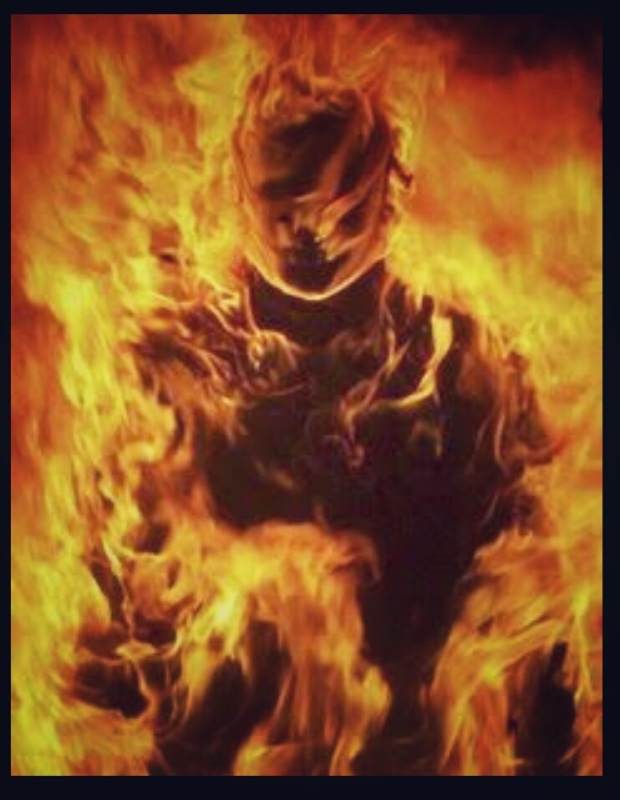إذا أردتم أن تعرفوا مدى التحدي في أن نكون مسلمين في هذه الدنيا، وبكم يقدر الله سبحانه وتعالى طاعتنا له فأحد أفضل البراهين التي توضح هذه المسألة هي مصير أهل الفترة، أو من سيموتون دون أن تصل إليهم رسالة الإسلام.
يقول الإمام أحمد في مسنده:
عن الأسود بن سريع أن النبي ﷺ قال: “أربعة يمتحنون يوم القيامة: رجل أصم لا يسمع شيئًا، ورجل أحمق، ورجل هرِم، ورجل مات في فترة، فأما الأصم فيقول: رب لقد جاء الإسلام وما أسمع شيئًا، وأما الأحمق فيقول: رب لقد جاء الإسلام والصبيان يقذفوني بالبعر، وأما الهرِم فيقول: رب لقد جاء الإسلام وما أعقل شيئًا، وأما الذي مات في الفترة فيقول: رب ما أتاني لك رسول، فيأخذ مواثيقهم ليطيعونه، فيرسل إليهم أن ادخلوا النار، فمن دخلها كانت عليه برداً وسلاماً، ومن لم يدخلها يسحب إليها”.
سبحان الله! إنه لحديث عظيم حقًا! لقد أذهلتني المعادلة بين اختبار من لديهم معرفة بالإسلام في الدنيا واختبار الآخرة لمن لم يكن لديهم معرفة بالإسلام.
الاختبار الذي سيعقد لهذه الفئات الأربع من الناس في الآخرة عبارة عن عمل طاعة يتم لمرة واحدة فقط، ولك أن تتخيل كم صعوبته! مما يذكرنا كثيرًا بنبي الله إبراهيم وأصحاب الأخدود.
قوة وشدة هذا الاختبار تعادل عمر كامل من الطاعة في الحياة الدنيا!
كل تلك القرارات التي علينا اتخاذها في هذه الحياة من أجل طاعة الله بدلا من طاعة رغباتنا الخاصة، كل الإغراءات التي تزين لنا الرفض، وكيف علينا علميًا أن ندير ظهورنا لهذه الدنيا ونختار طريق الإسلام رغم كل ما سنواجه من عقبات وكراهية ومعارضة وسخرية واغتراب وعداء… كل هذا يشبه من يخطو طوعًا في النار، ثقة في ربنا وتوكلًا عليه على الرغم من مخاوفنا وغرائزنا التي تدفعنا للحفاظ على نفوسنا.
وتمامًا كما أن النار ستصبح باردةً لمن سيختارون في الآخرة طاعة الله ويقذفون أنفسهم فيها، فكذلك سنجد نحن دائمًا السلام والراحة والأمان في الدنيا عندما نختار الطاعة.
الحمد لله!
If you want to know how challenging it is to be a Muslim in this Dunya, and how much Allah Appreciates our obedience, one of the best illustrations of this is the fate of those who die without having received the Message of Islam.Imam Ahmad recorded in his Musnad:
Rasulullah ﷺ said “Four will have proofs (in their favor) on the Day of Standing: (1) A deaf man who could not hear anything; (2) a fool (who could not understand anything); (3) a feebly old man; and (4) a man who died in the fatrah (the period between prophets). As for the deaf man, then he will say: ‘My Lord, Islam came and I did not hear anything.’ And as for the fool, then he will say, ‘My Lord, Islam came and the children were throwing dung at me.’ And as for the feebly old man, then he will say, ‘My Lord, Islam came and I did not understand anything.’ And as for the one who died in the fatrah (period between prophets), then he will say, ‘My Lord, no messenger from you came to me.’ So He (Allah) will take oaths from them that they will obey Him (in what He is about to request from them), so it (an order) will be sent to them: ‘Enter the Fire!’ And verily by Him in whose Hand is my soul, if they entered it, it will be cool and soothing.”
SubhanAllah! This is such a tremendous hadith. I am struck by the equivalence between the test given to those with knowledge of Islam in the Dunya and the test in the Akhirah for those who did not have knowledge of Islam.
The test given to those four categories of people in the Akhirah is a one-time act of obedience, but imagine how difficult! One is reminded of Nabi Ibrahim, and the People of the Ditch.
The intensity of this test is equivalent to a lifetime of obedience in the Dunya.
All of those decisions we have to make in this life to obey Allah instead of our own desires; all the temptations we have to refuse; how we have to, essentially, turn our backs on the Dunya, choosing the Path of Islam despite all the obstacles, hatred, opposition, ridicule, alienation, and hostility we will face; is like voluntarily stepping into a fire; trusting in our Rabb, in spite of our fears, instincts, and sense of self-preservation.
And, just as the fire will be cool for those people in the Akhirah who choose to obey Allah and step into it, so too do we always find peace and comfort and security in the Dunya when we choose obedience.
Al-Hamdulillah
